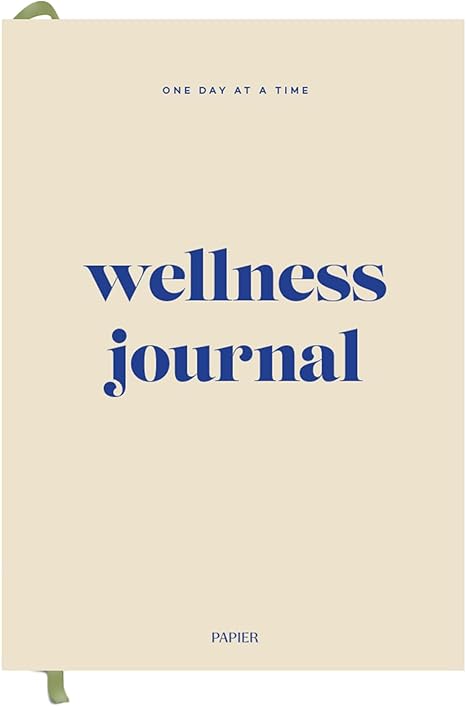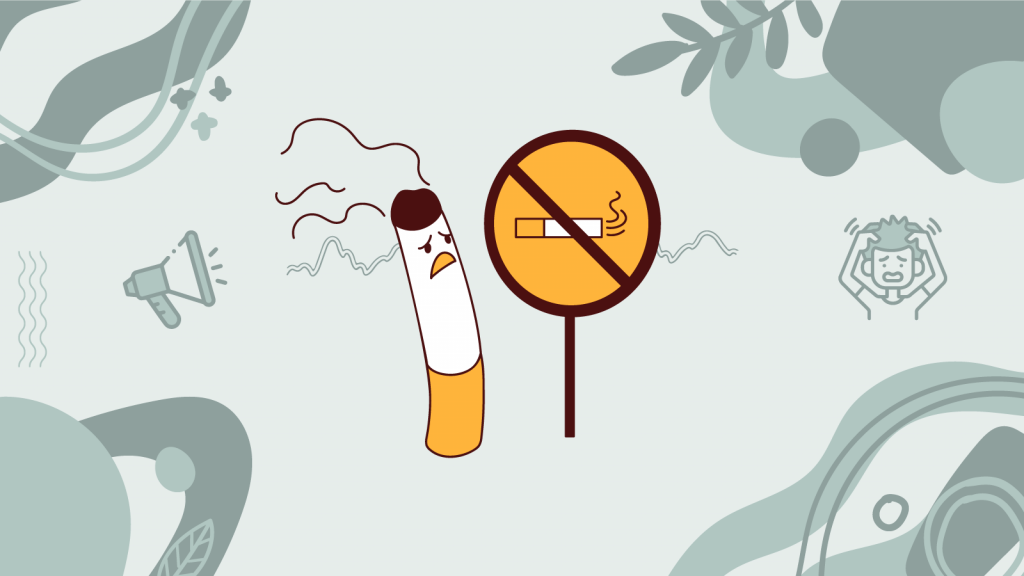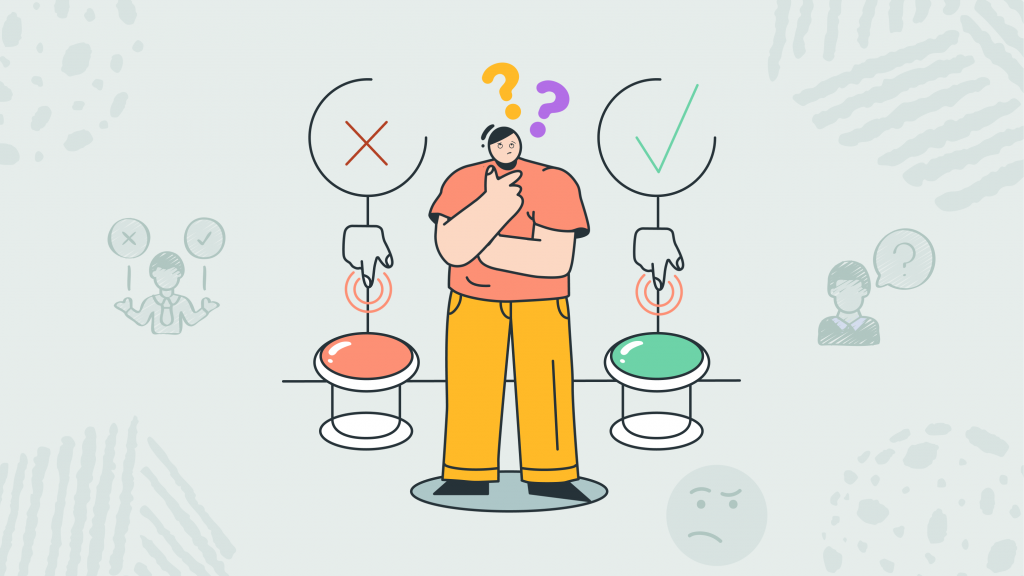Relationships are meant to bring out the best in you. If your relationships aren’t already thriving—making you feel good about yourself and giving you the confidence to push your boundaries—it’s better to let them go.
On the contrary, if you feel drained in a relationship, feeling like you are always the one giving, it signals that you may have been planted in the wrong soil. It’s time to do the correction and make things right. This is where you need to practice emotional detachment.
Understanding the situation before emotionally detached from someone is crucial. It’s essential to understand the need for an hour before actually detaching from someone.
Let’s try to understand it with the help of a hypothetical example of a couple named Emily and William.
Emily and William were having a relationship for 5 years. As they move in time, Emily feels distant and misses the spark she once had in their relationship. She tries to discuss it with William but fails to reach a consensus. Also, she experiences that as time goes by, the pain of growing distant from one another and not being able to bring an effective solution is only increasing her hurt.
On the other hand, William remained occupied with professional obligations and couldn’t understand the reason behind Emily’s resentment.
This is when she decides to take the route of emotional detachment to relieve her growing pain. However, the solution was introspection on both sides. A simple couple’s therapy session where each partner could explain their perspective would have resolved the issue.
What Does It Mean to Detach from Someone Emotionally?
To detach from someone is to distance yourself from them emotionally. This generally occurs when the level of hurt in a relationship exceeds the tolerance. When an individual starts experiencing intense pain, stress, and anxiety, it reveals the dysfunctional side of the relationship. This is when emotional detachment serves as a temporary resort to release the pain and hurt.
The underlying need to practically detach from someone arises either when you are in a toxic relationship or when the negative emotions in the relationship have accumulated to the point that the only way to get mental relief is to detach yourself.
According to a study published in the Journal of Social and Personal Relationships, around 30% of individuals report having emotionally detached from a partner at some point in their lives to cope with relationship challenges.
Our attachment style with our partner, family, and friends says a lot about it. It is usually found that individuals who have unhealthy attachment styles (anxious attachment, avoidant attachment) are more likely to feel the need to detach themselves emotionally.
Signs that Call for Emotional Detachment
According to Harvard Health Publishing, emotional detachment is a common coping mechanism for people dealing with high levels of emotional stress, particularly in relationships where they feel undervalued or unappreciated.
Among the most critical steps is to identify the signs and symptoms of whether you need to detach from a person or not. Read it to the last to know if you should follow the path of emotional detachment.
- Feeling Drained
If a relationship is leaving you empty inside and you’re experiencing stress to a degree that you’re unable to function properly, it’s a clear sign of an unhealthy relationship dynamic.When you feel drained in a relationship and nothing seems to work in your favor, you must explore the option of taking a time out and consider detaching yourself. This may give you temporary relief from all the pain and disappointment that you may be experiencing in a relationship.
- Unresolved Conflicts
One instance where you may feel the dire need to detach from someone emotionally is when you are left with unresolved conflicts and issues.Despite making every effort and trying your best, if you are unable to reach a common consensus in your fights, chances are you have hit emotional exhaustion. When you find yourself in a similar spot, acknowledge that you must first regain your lost peace before attempting to resolve the disputes.
- Unhealthy Relationship Dynamics
Research from the National Institute of Mental Health shows that relationships with toxic dynamics can lead to long-term psychological harm, making emotional detachment necessary for self-preservation.
Whenever you feel you are being manipulated or controlled to the point of losing your identity, it becomes a necessity to unplug yourself. In such cases, take some time off and try to reconnect with yourself. Try to bring yourself in alignment with your inner self.
- Inability to Grow
The inability to grow when inundated with enormous stress and anxiety from a relational trauma is a prominent sign that you should detach yourself. It is often the scenario when we go through immense levels of stress that we cease to grow and flourish.
When faced with such instances where the adverse effects of a relationship show on your growth, it’s time to detach yourself emotionally so that you can get in sync with your own best interests.
- Feeling Unappreciated
Feeling unappreciated is one sign that you are not finding the joy and happiness in a relationship that you deserve. Everyone must feel happy and content in a relationship, and when you don’t, it’s a clear sign to power off before you can effectively connect with the outside world.Emotional detachment is not always done in negative instances. It can sometimes be an effective resort to pause so that you can connect with the other person on better terms.
Attempt the quiz to find out if you need to practice emotional detachment.
1. Do you feel emotionally exhausted?
- Yes
- No
- Sometimes
2. Has your trust been broken?
- Yes
- No
- Sometimes
3. Do you feel that relationship is stunting your growth?
- Yes
- No
- Sometimes
4. How often do you get into conflicts?
- Quite Often
- Rarely
- Never
5. How quickly do you find the resolution to the relationship conflicts?
- Stays Unresolved
- It takes time but often gets resolved
- Pretty quick
If you answered mostly ‘a,’ it may be time to consider emotionally detaching from the relationship.
Ways to Detach from Someone
If you are in a toxic relationship where you feel inadequate while staying in an unhealthy relationship dynamic, consider detaching yourself to regain your lost peace and joy.
Here are the quick ways to detach from the people who are not supporting your emotional health.
Set Clear Boundaries
Try to set clear boundaries when you choose to practice emotional detachment. Look deep within yourself to find what makes you happy and sad, what are the elements that you can negotiate, and what lies outside the purview of being negotiated at all. When you start to find answers to all these questions, you’ll reach a point where you’ll be able to stand firmly on the ground of your truths, and this is what will help you regain a healthy emotional state.
Invest in Self-Care
One of the best ways to improve your emotional well-being when trying to overcome a bad relationship bond is to invest in self-care. Do it as you like. It could be anything from taking yourself to a spa experience to listening to your favorite music. You release emotional blocks when you spend quality time with yourself without imposing anything and accommodate your emotions as they come. Also, this way, you increase the chances of getting mental clarity and moving ahead with greater wisdom.
Distance Yourself
It is equally important to distance yourself from a person or relationship that brings negativity into your life. When you do this and take an emotional break for a while, you are doing yourself a big favor. This will tone down your aggravated emotional state and will allow you to see through it clearly. It is especially effective in cases where you are bearing extreme toxicity in a relationship.
👉 Pro Tip:
Consider blocking the particular connection from your social media channels to divert your mind.
Get in Touch with Your Emotions
Whenever you decide to emotionally detach from a person in the wake of unpleasant conditions or to bring back your lost peace, start with releasing your tough emotions. This can be a powerful exercise to help you return to the higher vibrational state you once experienced. This means giving yourself time and space to vent out negative emotions. Cry if you need to, dance, or go for a walk if you feel overwhelmed by your feelings.
By doing so, you’ll get in touch with your own emotions and will reset your internal radar to guide you through your tough times.
Seek Support
According to the National Alliance on Mental Illness (NAMI), individuals who seek social support during emotional challenges are 50% more likely to recover quickly.
It isn’t always easy to cope with stressful situations in relationships on your own. If these tips and tricks aren’t helping, consider seeking external support. You can consult a therapist to help you navigate through this challenging phase. Additionally, you may consider joining groups or communities experiencing similar challenges so you can be among people who better relate to your situation and help you cope with the trouble you’re facing.
Count Your Blessings
Last but not least, you can try to remain positive. By remaining positive, we don’t mean you have to suppress your real feelings or bulldoze yourself to feel positive emotions. This simply means you have to look at the bright side of your life and try to feel content with all that you have. If you don’t find a way to do so, you can buy yourself a wellness journal with pre-filled columns and sections and further add your thoughts to it to ensure you are releasing your emotions to reclaim your joy.
- Rewire Yourself
When going through emotional turmoil, utilize this time to introspect and look deep within. It is sometimes essential to reset the expectations that we have from others. Not every turmoil erupts from the outside. Sometimes, it’s about the unrealistic expectations that create turbulence in our relationships. When given the opportunity to get into the self-analysis, question every standard and expectation that you have, and once you’re done, attempt to rewire it in a way to extract maximum joy and contentment in a relationship.
Final Thoughts
Building relationships is a fine art. It is an art where learning to balance energy is essential. And as we progress, there should be an equal exchange of emotional investment in one another. If any relationship demonstrates an imbalance of power and emotions, it will show up in how you feel about it. Following steps like setting clear boundaries, indulging in self-care, and getting in touch with your feelings would get you sorted. Incorporate these steps into your life, and you’ll step into healthy emotional territory.
Also, there can be instances where some people use emotional detachment as a manipulative tactic, which can further dent the relationship. Try to remain judicious while practicing it, and you’ll be amazed to see how effectively it reboots your emotional body.
Sources:
- University Of California, San Francisco: Ways to let go of Emotional Suffering
- Maricopa County & ComPsych: Setting Boundaries in Relationships
- Black Dog Institute: Importance of self-care planning





















